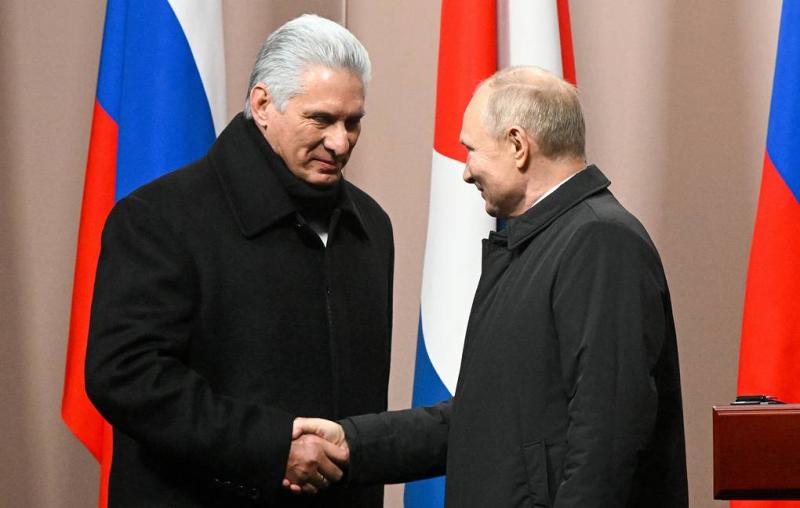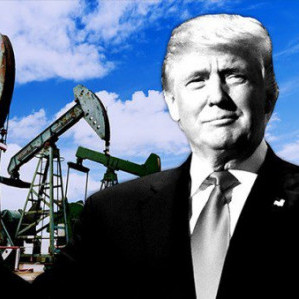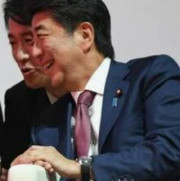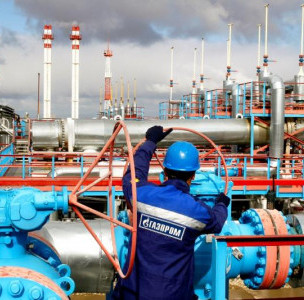
© Sergei Guneyev/POOL/TASS
Top stories from the Russian press on Wednesday, November 23rd, prepared by TASS
The presidents of Russia and Cuba highlighted plans to boost ties at a meeting in Moscow, the European Parliament is expected to consider a resolution designating Russia as a state sponsor of terrorism, and Serbia and Kosovo have two days to reach a compromise on the issue of vehicle license plates. These stories dominated Wednesday’s newspaper headlines across Russia.
Vedomosti: Russia, Cuba unite to resist Western pressure
Presidents Vladimir Putin of Russia and Miguel Diaz-Canel of Cuba held talks in Moscow and unveiled a monument to Fidel Castro. Putin highlighted Moscow’s support for Cuba’s sovereignty at their meeting in the Kremlin, and Diaz-Canel pointed out that Havana condemned sanctions on Russia, Vedomosti notes.
Cuba will surely support Russia on a number of issues, including sanctions, because Havana has been under a US blockade since 1960, Professor Viktor Kheifets of the International Relations Department at St. Petersburg State University told the newspaper. However, Havana is unlikely to unequivocally back Moscow in terms of the Ukrainian crisis, the expert noted.
Cuba maintains a cautious stance based on the need to maneuver between Russia who is capable of providing it with considerable support, and the United States who is gradually going back to Barack Obama’s policy aimed at restoring relations, which was suspended by Donald Trump, Deputy Director of the Russian Academy of Sciences’ Institute of Latin American Studies Dmitry Rozental explained.
Cuba does not have much importance for Russia as a trade partner, Kheifets noted. At the same time, there is a lot of Soviet and Russian made civilian equipment in the Caribbean island country, as well as infrastructure facilities built with Moscow’s assistance. "It is the contracts for the maintenance of that equipment and infrastructure that are of interest to Russia," the expert stressed.
In addition, Russia provides assistance to Cuba in the geological exploration of oil and gas in offshore areas. Cuba is also considering joining Russia’s Mir payment system since the country’s banks aren’t afraid of sanctions. The move may help restore Russia’s tourist inflow to Cuba in the wake of the coronavirus pandemic, Kheifits pointed out. Also, the two countries may boost cooperation in the pharmaceutical industry, Rozental added.
Kommersant: European Parliament calls for labeling Russia state sponsor of terrorism
The European Parliament will consider a resolution designating Russia as a state sponsor of terrorism on November 23. Out of all the Russia-related resolutions that the European Parliament has ever discussed, this one is the toughest. It won’t be legally binding but its adoption may further exacerbate tensions between the European Union and Moscow, Kommersant writes.
Russia’s military operation in Ukraine was the main reason for drafting the resolution. However, the document also mentions the conflicts in Chechnya, the Central African Republic and Mali, as well as the 2008 events in South Ossetia, Syria’s civil war, the poisoning of the Skripals and Alexey Navalny, and also the 2014 ammunition depot explosions in the Czech Republic. According to European Parliament members, this all is enough to label Russia as a state sponsor of terrorism. However, the document makes it clear that neither the European Union nor its member states have a related legal mechanism.
The European Parliament’s resolutions are recommendatory. The EU’s executive bodies and national institutions should pay attention to them but they aren’t obliged to implement those documents. "It is kind of a political declaration, though not a harmless one," Valdai Discussion Club Program Director Ivan Timofeev explained. "It clarifies the political position of one of the EU’s key bodies. Although it is not legally binding, it may well become a framework or a basis for some decisions that the EU or its member states will make," he added.
"All this will not facilitate efforts to resolve the conflict around Ukraine, but it will only exacerbate the confrontation between the West and Russia," Timofeev emphasized.
Izvestia: Can Serbia and Kosovo manage to compromise within two days
Serbia and the self-proclaimed Republic of Kosovo are close to a full-scale confrontation on the border, Serbian politicians told Izvestia. Belgrade and Pristina have just two days to come to a compromise on the use of vehicle license plates. Experts believe that Serbia and Kosovo will manage to reach an agreement but the Kosovo leadership seeks to take advantage of the current tensions to better position themselves for the talks.
Member of the Serbian Progressive Party’s presidium and head of the Serbian permanent mission to the NATO Parliamentary Assembly Vladimir Djukanovic told the newspaper that the situation might eventually lead to a full-fledged military confrontation.
Pristina is totally unprepared to fulfill the Brussels Agreement and form a union of Serb municipalities of Kosovo and Metohija, though it signed documents committing to do so through its parliament, explained Stevan Gajic, an expert at the Belgrade-based Institute of Political Studies. According to him, the developments of the recent months are significantly different from what happened last year and the year before because Pristina’s rhetoric has grown more aggressive.
Kosovo continues to raise the stakes in order to win concessions from Belgrade, political scientist Denis Denisov pointed out. "The situation will hardly come to direct armed clashes because both Serbia and the self-proclaimed Republic of Kosovo are well aware what consequences the use of force will have on the part of the counterparties - the US and the EU," the expert noted.
"In fact it was the Serbs who actually legitimized the Kosovo government over the past two years by agreeing to hold talks with Pristina. So, Kosovo is not the only one to blame for the current tensions as it is the Serbs who created such a situation and the Albanians only took advantage of it and now keep pressuring Belgrade," the political scientist emphasized.
Nezavisimaya Gazeta: Iran may tighten foreign policy amid domestic protests
Anti-government sentiment in Iran is rising because of the growing secularization of society, says a study by the Tony Blair Institute and the Group for Analyzing and Measuring Attitudes in Iran (GAMAAN) based in the Netherlands. Researchers came to the conclusion that the secular nature of the prolonged protests makes it inevitable that it will aim to dismantle the government. Tehran’s regional opponents have already started to voice concerns that the unrest will push the Iranian authorities to clamp down both on their domestic and foreign policies, Nezavisimaya Gazeta writes.
Tehran showed its readiness to shift the emphasis around the protests early on by conducting strikes on northern Iraq home to the Kurdish organizations that Iran blames for inciting the unrest. This week, Iran’s Islamic Revolutionary Guard Corps went on with cross-border strikes.
The very way the Iranian authorities are acting in the country’s Kurdish areas is more like counterinsurgency rather than measures to contain civil unrest, Russian International Affairs Council expert Nikita Smagin explained. He emphasized that regular army units and IRGC members were simply blocking roads leading out of populated areas and they were also using automatic weapons.
"It seems to me that the Iranian authorities have sufficient capacity to suppress the current Kurdish protests in border areas because there is a noticeably serious gap in their resources and organizational capabilities," the analyst noted.
However, if the Kurdish style of uprisings makes itself felt in other regions of Iran, systemic problems may emerge, Smagin added.
Izvestia: Europe rushes to purchase Russian diesel fuel
European countries are feverishly purchasing Russian diesel fuel ahead of the much-anticipated looming embargo. Although Russia is the largest diesel supplier to the continent, Europeans are also counting on imports from other countries. However, a big question mark is hanging over stable supplies and besides, buyers will have to pay exorbitant prices. Major players are talking about shortages and an imminent large-scale fuel crisis, Izvestia writes.
Europe does not produce enough diesel fuel as many oil refineries have shut down over the recent years and stocks are rapidly drying up. In February, the EU will ban the maritime transportation of almost all Russian oil products, including diesel fuel. In December, a ban on Russian oil imports will take effect. So given the situation, Europeans started to buy up Russian diesel fuel for future use.
Asian refiners also ramped up supplies to the EU in recent months but still, alternative sources won’t be able to fully offset the shortfalls. First, all major diesel fuel supplies are facing shortages themselves and besides, high prices are becoming an issue.
"Europeans will have to look for diesel fuel from other countries. India and China are among the few options left for them. By comparison, Russia supplied 31 mln tons to Europe alone in 2021, while China delivered only eight mln tons to its foreign consumers, including European ones. Exports will be restricted in 2023 for the sake of the domestic market and very small amounts will be supplied to Europe, primarily at inflated prices. India will also set high prices," independent industry expert Leonid Khazanov pointed out.
There is also no reason to expect much from the United States who does not have enough diesel fuel to meet its own needs. US commercial stocks of diesel fuel and fuel oil currently stand at only 106 mln barrels, which is quite low, and things will only get worse as winter approaches, said Vladimir Sagalayev, a financial analyst with the CMS group of companies.









